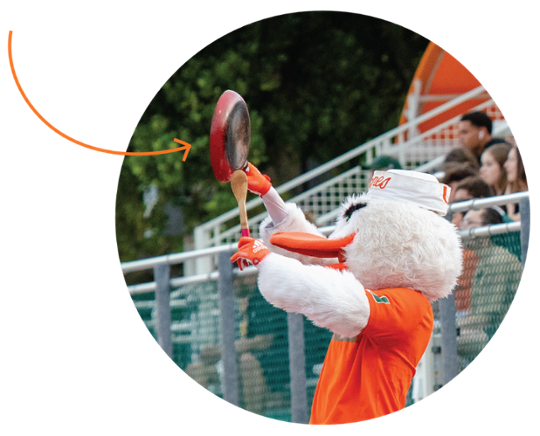If you grew up in a city or town and never quite left, you know all too well that residents of your area speak a certain language. Attribute it to regional word variation, local cultural references, an infusion of immigrants, or something else. The point is that most newcomers could benefit from a glossary of terms when visiting a new location, whether it’s ten miles away from home, or 2,000. The city of Miami is no different. For all the aforementioned reasons, Miami has its own language - its own set of terms that are completely unique and known by lifers. University of Miami students get swept up in the wave of new words and phrases to not only survive, but thrive in our vibrant melting pot of a city. Hoping to get a head start on learning the local lingo? Here are a few terms to get you started.
Cafe con leche - a Cuban-style espresso and milk, usually sweetened
Ventanita - a small pick-up/order window in a restaurant (Spanish for "little window")
Dale - Term used to initiate taking action on a plan; Similar to “Let’s go!”; “OK!”

Pero, like - Spanglish for “but, like…”
Ya tu sabe/s - Colloquial Spanish for “you know,” or “you already know”
Literally - Used in nearly every sentence at least twice per hour
Super - Used in nearly every sentence at least twice per hour
Yeah, no - No
No, yeah - Yes
Cojelo con teikirisi - Cuban colloquial Spanglish for “relax” or “take it easy”
Pastelitos - Cuban flaky pastries usually filled with guava paste and/or cheese; occasionally ground beef
Flan - Caramel custard with a deeply dark and rich sauce; made best by abuelas
Pate - Haitian flaky pastries usually filled with seasoned chicken, beef, or salted fish
Haitian bakeries - Where one procures pate and other assorted Haitian treasures
Cuban bakeries - Where one procures pastelitos and other assorted Cuban treasures
Croquetas/croqueticas - Cuban-style seasoned ham or chicken croquettes that have been breaded and fried; appropriate for all times of the day or night
Tequenos - Venezuelan-style cheese sticks wrapped in dough and baked until soft and melty
Empanadas - Baked or fried turnovers filled with seasoned ground beef, chicken, spinach and cheese, steak, and more; Ample variety and variances in preparation (IE: Cuban, Colombian, Argentinian, etc.); an excellent hand-held snack between classes
Colada - as social concept, a shared afternoon pick-me-up experience; one person goes to buy one and the bakery or cafe provides small thimble-size cups so the buyer can share with others (friends or strangers); a strong sweetened espresso beverage
Pots, pans, wooden spoons, ladles at parades - Instruments used to make noise at times of celebration (IE at a parade or party) 
Mojo pork - Cuban-style marinated and slow-roasted pork with a sour citrus garlic sauce
Caja china - A wooden box placed into the ground to roast a whole pig; very popular at homestyle celebrations/parties
Completa - an enormous combo meal usually composed of a meat entree, two or three starches, and a veggie; can be procured at many grocery stores and even gas stations or convenience stores; great to get for lunch and save the rest for dinner
Alfajores - Argentinian-style shortbread cookies sandwiched with dulce de leche (caramelized milk)
Tres leches - Light and spongey cake that has been soaked in three different types of milk (evaporated, sweetened condensed, and heavy cream), topped with either meringue or whipped cream
Parallel parking - An essential skill to perfect
Metrorail - Easy and cheap transport throughout portions of southern Miami-Dade County; convenient for UM students
Griot - Haitian-style marinated pork chunks that have been fried until crispy and tender
Tostones/plantains - Discs of smashed green banana that has been fried and salted; excellent vehicle for meats and sauces; in Cuban restaurants they are called tostones; in Haitian restaurants they are called plantains; excellent in completas
Maduros - Sweet green banana that has either been baked or fried; excellent in completas
Dominican hair salons - Where one procures the best blow-outs
Dogs at restaurants / in handbags - An essential sight all over Miami
Vivaporu - Vick’s Vapor Rub; home remedy to many ailments
Afilador - A fixture in residential areas; professional knife sharpener who drives a musical truck (similar to an ice cream truck); flagged down to sharpen kitchen knives and even machetes (a common household tool used to cut down coconuts from backyard palm trees)

